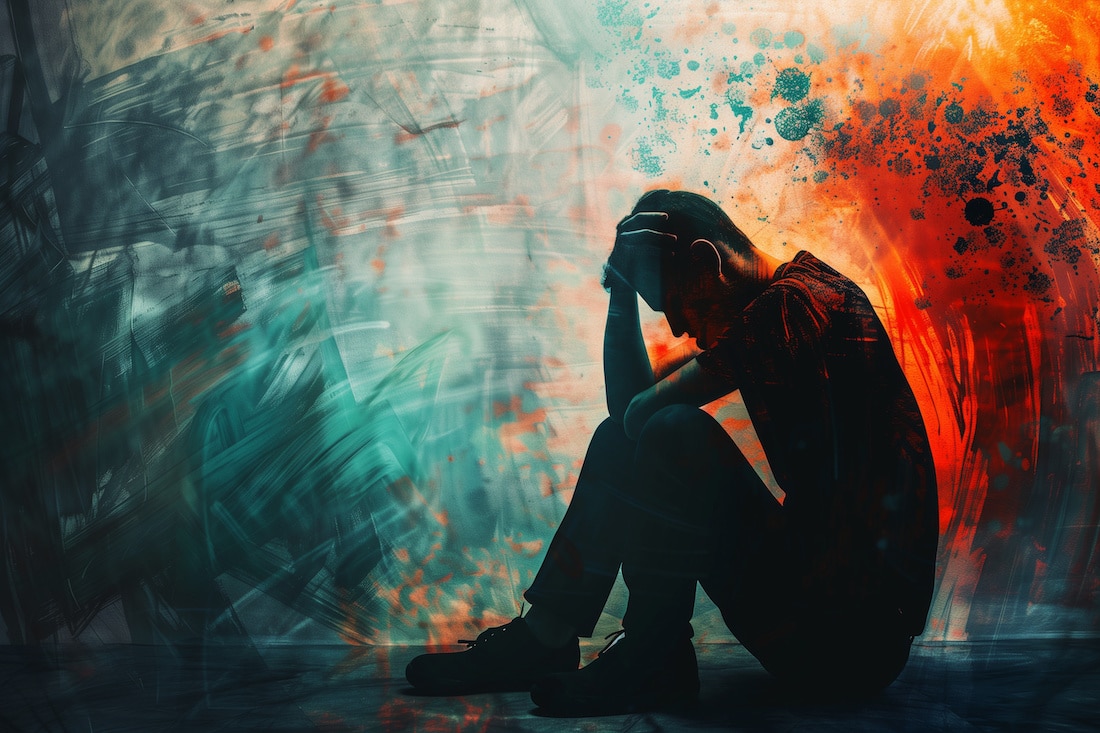 Summertime seems to be a natural mood booster for most people. Warmer weather, days last longer, and vacations with family and friends are just some of the exciting things the season brings. It’s usually a time of fun, freedom, and relaxation, a welcome change from the downer that the winter season can be.
Summertime seems to be a natural mood booster for most people. Warmer weather, days last longer, and vacations with family and friends are just some of the exciting things the season brings. It’s usually a time of fun, freedom, and relaxation, a welcome change from the downer that the winter season can be.
Summer isn’t all it’s cracked up to be for some, though. While wintertime is typically the season associated with depression, summertime depression is a problem, too. People don’t experience depression during the summer as often, but that doesn’t make it any less distressing.
If you’re someone who goes through an emotional lull during the summer, coping with summertime depression can feel like an isolating experience. It seems like everyone is out having fun in the sun while you’re struggling to make it out of bed in the morning. The pressure to be out and enjoying yourself with them only makes things worse.
Why does summertime depression happen, and what can you do? Are there ways to manage your symptoms and still have an enjoyable summer?
Causes of Summertime Depression
It doesn’t seem like summer would be a time for depression to set in, but that’s the reality for some individuals. What are some causes of summertime depression?
Seasonal Affective Disorder
Seasonal affective disorder (SAD) is a type of depression characterized by serious shifts in mood that come with changes in the season. People experience significant disruption in the way they feel, think, and handle their daily responsibilities. Most cases of SAD occur during the fall and winter months then subside as spring and summer come around.
Not everyone experiences SAD during fall and winter, though. An estimated 10% experience summertime depression or reverse seasonal affective disorder. These individuals feel sad, hopeless, experience appetite loss, difficulties sleeping, weight loss, and anxiety.
Heat and Humidity
Some research shows that people in countries near the equator, like India, experience higher rates of summertime depression. One study draws connections between the compounds in the body responsible for mood regulation (norepinephrine, serotonin, and dopamine) and those that regulate body temperature. This suggests that increased heat and humidity play a role in the development of reverse SAD.
Body Dysmorphia and Body Image Struggles
Individuals who struggle with body dysmorphia or other body image issues have difficulty during the summer months. The high temperatures usually mean t-shirts, tank tops, shorts, and swimsuits. These kinds of clothes leave people feeling exposed and self-conscious, exacerbating any troubles with body image. This may cause people to avoid social situations and could contribute to developing summertime depression.
Abnormal Summertime Schedules
Regular schedules are an essential part of maintaining good mental health. Summertime tends to be the antithesis to a regular schedule, though, with activities and gatherings popping up throughout the week. That resulting unpredictability and inconsistency can create significant stress. In addition, irregular schedules during the summer months can exacerbate underlying symptoms and cause someone to develop summertime depression.
How to Manage Summertime Depression
Summertime depression doesn’t have to mean that you must stay indoors all summer long. It’s not easy to fight back against depression, but there are some things you can do to manage your symptoms.
Know You’re Not Alone
One of the biggest triggers for depression is the feeling that you’re struggling alone. While you can’t think your way through your depressive symptoms, try to remember you’re not the only one. It can feel isolating to watch your friends having fun while you can hardly leave the house, but you’re not the only one with summertime depression.
Summer Isn’t “Supposed” To Look a Certain Way
There are plenty of expectations for what summer “should” look like, but that doesn’t mean much. Your summer doesn’t need to look any certain way. Placing expectations on what the time of year should entail only adds to your symptoms. Unrealistic ideas of what the months need to include will keep you from wanting to head outside at all. Remember that summer doesn’t “supposed” to look a certain way – it only needs to include things you want to and can do.
Get Some Sunlight
Summertime usually means there’s no shortage of sunlight, but that might make you want to stay indoors when you struggle with summertime depression. Heading outside into the heat is likely the last thing you want to do. It’s important for you to get some sunlight when you’re living with reverse SAD, though. Avoiding the sun can throw off your circadian rhythm and affect your sleep which worsens your symptoms. So —getting some sunlight is great for your mood, even if it doesn’t feel like it.
Forget About FOMO
FOMO, or the fear of missing out, strikes hard during the summer months when you have summertime depression. There are plenty of backyard barbecues, pool parties, beach days, and evening activities you could fill your schedule with during this time. Your symptoms probably keep you from wanting to go out, but the fear of missing out makes you feel like you must go. This creates a downward spiral that worsens your depression. Try to drop the FOMO if possible – you’re not obligated to attend every event that comes up.
Step Back from Social
Social media can be detrimental when you have summertime depression. Everyone’s posting pictures and videos from get-togethers, holidays, and vacations. It’s difficult not to feel like you’re missing out on all of the fun, but your mental health always comes first. There’s nothing wrong with not being able to make it out to all that’s going on. Taking a social media break for a few weeks or months might help your depression.
Stay Connected with Friends and Family
Don’t let your depression isolate you from the people who care. Stay connected with your friends and family to fight back against your summertime depression. Let them know that the next few months might be difficult, and you may need some extra support. Your friends and family will be more than willing to step in and help you feel at ease when your symptoms arise.
Establish a Routine
A consistent routine is a great way to fight back against depression. A routine doesn’t cure you of your, but it does limit the severity of your symptoms. Build a practice that includes things you enjoy doing so it doesn’t feel like a chore. For example, include some time for the following: friends and family, alone time, exercise, and exploring outside. You don’t need to be overly adherent to your schedule, but it’s good to use it as a guide to keep things more consistent and predictable.
Consider Mental Health Treatment
If your summertime depression is debilitating enough, it’s a good idea to consider mental health treatment. Facilities like Clearview Treatment Programs provide a range of treatment options to meet your needs, whatever they may be. Whether you’re looking for a more intensive option like inpatient treatment or a more adaptable alternative like outpatient, we’re here to help.
Clearview Treatment Programs is here to support you as you learn to manage your symptoms of summertime depression. You don’t need to deal with your depression alone – we’re here to help. Reach out to us to speak with an admissions counselor, learn more about our programs, and find out which option is best for you today!



